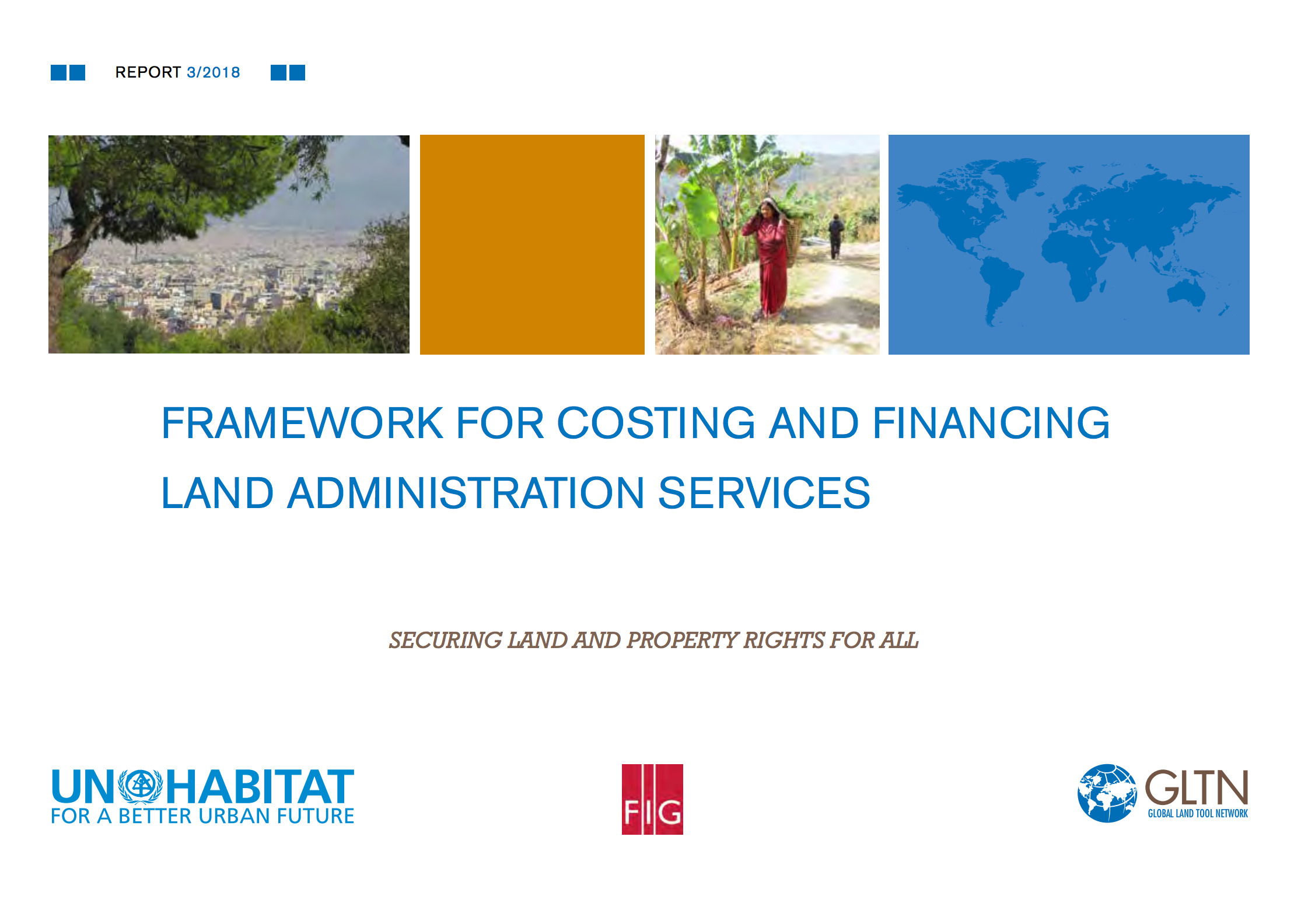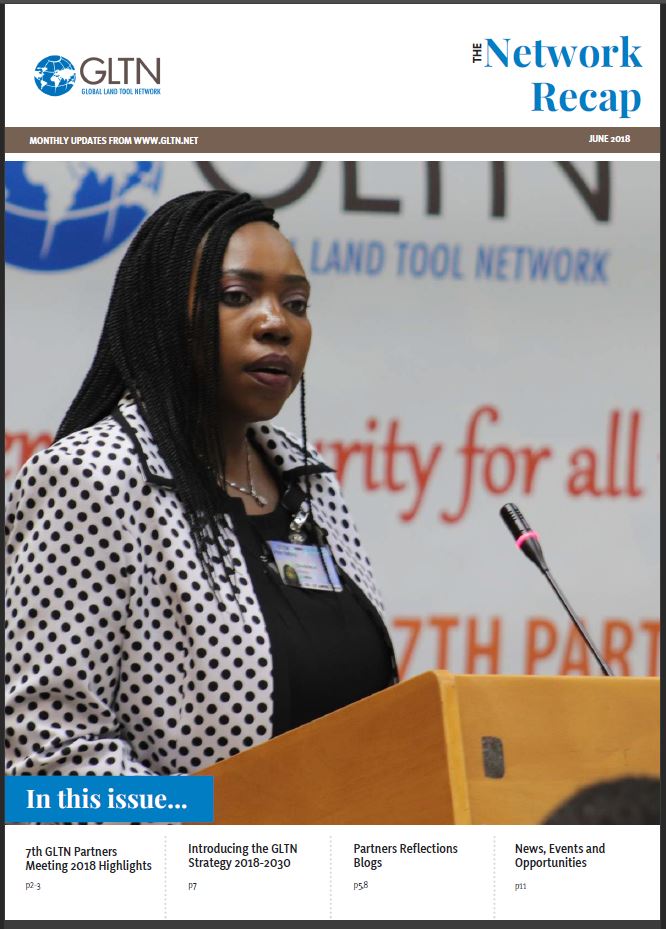Focal point
Location
The Global Land Tool Network (GLTN) is an alliance of global regional and national partners contributing to poverty alleviation through land reform, improved land management and security of tenure particularly through the development and dissemination of pro-poor and gender-sensitive land tools.
Secure land tenure and property rights are fundamental to shelter and livelihoods as well as the realisation of human rights, poverty reduction,economic prosperity and sustainable development.
The Global Land Tool Network (GLTN) main objective therefore is to contribute to poverty alleviation and the Millennium Development Goals through land reform, improved land management and security of tenure.
UN-Habitat through GLTN continues to work towards this with partners who include international civil society organizations, international finance institutions, international research and training institutions, donors and professional bodies.
Most developing countries use conventional land administration systems which cover less than 30 per cent of the country, leaving up to 70 per cent of citizens looking to informal and/ or customary approaches for their tenure security.
While there are many examples of good land policies, there are few policies that have been fully implemented due to lack of pro-poor, gendersensitive and largescale land tools. Further, conventional land titling approaches have largely failed to deliver their expected results since existing technical solutions are too expensive, inappropriate for the range of tenure found in developing countries, unsustainable financially or in terms of available capacity, and instead a range of land tenure options is more appropriate.
Core Values
Consequently, GLTN's core values and principles are founded in the development of land tools that are:
- Pro poor;
- Equitable;
- Sustainable;
- Affordable;
- Systematically large scale /scalable; and,
- Gender-sensitive, while taking into consideration:
- Good governance;
- Subsidiarity; and,
- The Continuum of Land Rights.
GLTN Objectives and Mandate
GLTN has developed a global partnership on land issues pulling together global partners, as well as many individual members. These partners include international networks of civil society, International Finance Institutions, international research and training institutions, donors and professional bodies. It continues to take a more holistic approach to land issues by working towards the following objectives:
- The establishment of a continuum of land rights, rather than just focus on individual land titling
- Improving and developing pro-poor land management, as well as land tenure tools
- Unblocking existing initiatives Assisting in strengthening existing land networks
- Supporting in the development of gendered land tools which are affordable and useful to grassroots
- Improving the general dissemination of knowledge about how to improve security of tenure
- Improving the general knowledge dissemination on the improvement of security of tenure
Resources
Displaying 36 - 40 of 288Framework for Costing and Financing Land Administration Services (CoFLAS)
The tool presented in this guide aims to assist policy-makers and land administrators to adopt appropriate technologies and methodologies for land administration services more efficiently, cost effectively and with options most appropriately tailored to national and sub-national contexts. It was developed after recognizing the need to modernize the budgetary approach to land agencies and to provide effective, cost-efficient, affordable and sustainable services, particularly in developing countries.
Land and Conflict. Lessons from The Field on Conflict Sensitive Land Governance and Peacebuilding
Publication shows how addressing land issues can mitigate conflict;facilitate solutions to it;improve the likelihood that people can return to their homes after the violence is over;and contribute to peace overall. Draws on cases in nine countries in the Arab States;Africa and Latin America;with a range of conflict parties: farmers;herders;landlords;villagers;mining companies;host communities;displaced people;gangs;and various levels of government.
HOW TO DO A ROOT CAUSE ANALYSIS OF LAND AND CONFLICT FOR PEACE BUILDING
The Global Land Tool Network (GLTN) is an alliance of international partners contributing to poverty alleviation and the Sustainable Development Goals through land reform, improved land management and security of tenure, through the development and implementation of inclusive and gender-responsive land tools.
The Network Recap – June 2018
Land sector challenges are vast and complex. Insecure rights to land continues to affect more than 2 billion people living in urban and rural informality worldwide, with women, youth and indigenous people faring the worst. We need more strategic partnerships, at all levels, that drive innovative thinking and provide practical solutions to these tenure security challenges.
Reflections on GLII Achievements and Plans
Its June 2018, half a year down the line following the reclassification of several land indicators including 1.4.2 by the IAEG-SDGs in November 2017. To all of us, this milestone was defining and encouraging in our effort towards achieving monitoring of land governance issues at scale.









